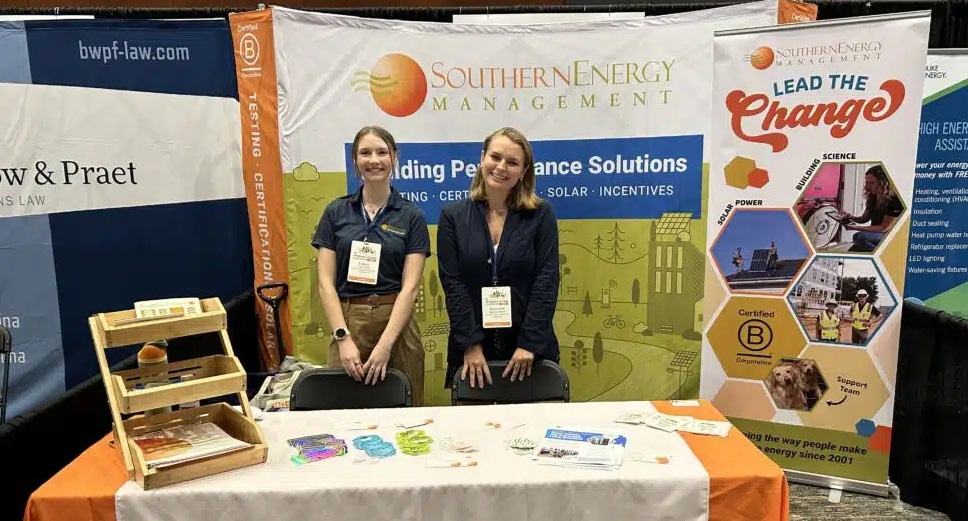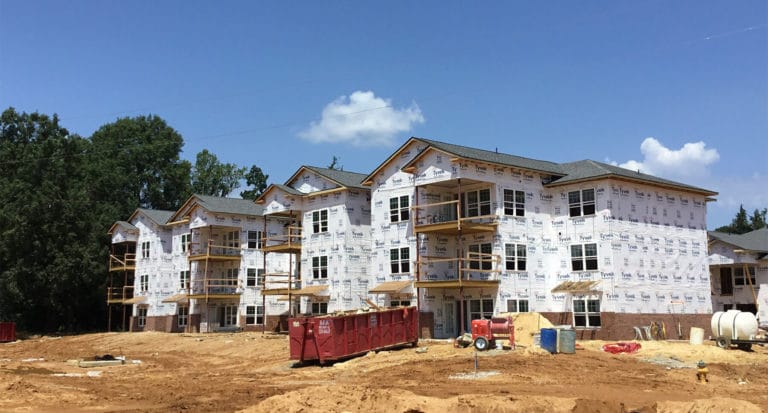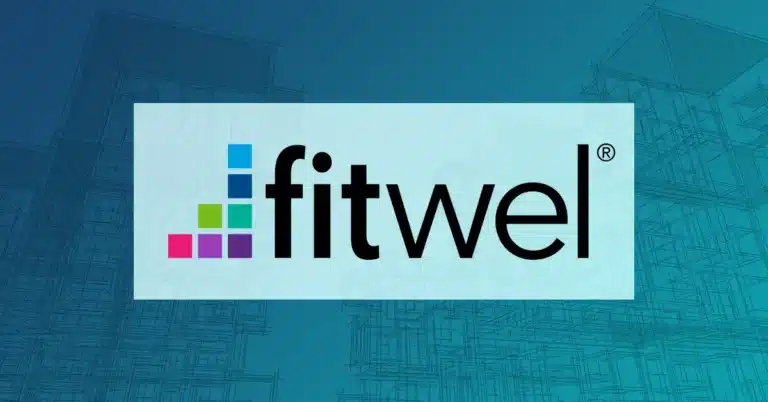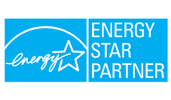NC Affordable Housing Conference: Paving the Way for Energy-Efficient Development
This month, our team had the opportunity to attend the North Carolina Affordable Housing Conference. It was a great gathering of minds all geared towards one goal: increasing opportunities for affordable housing in North Carolina.

Source: Liz Condo Photography
Highlights from North Carolina’s 2024 Affordable Housing Conference
Melissa Malkin-Weber, Co-Director of the NC Clean Energy Fund, shared that the demand for skilled professionals in the clean energy sector is booming. She also highlighted North Carolina’s ambitious goal to hit net-zero greenhouse gas emissions by 2050. She discussed the Inflation Reduction Act (IRA) Home Energy Rebates which are accessible to a broad audience from homeowners to tenants, with a special focus on helping those with low and moderate incomes.
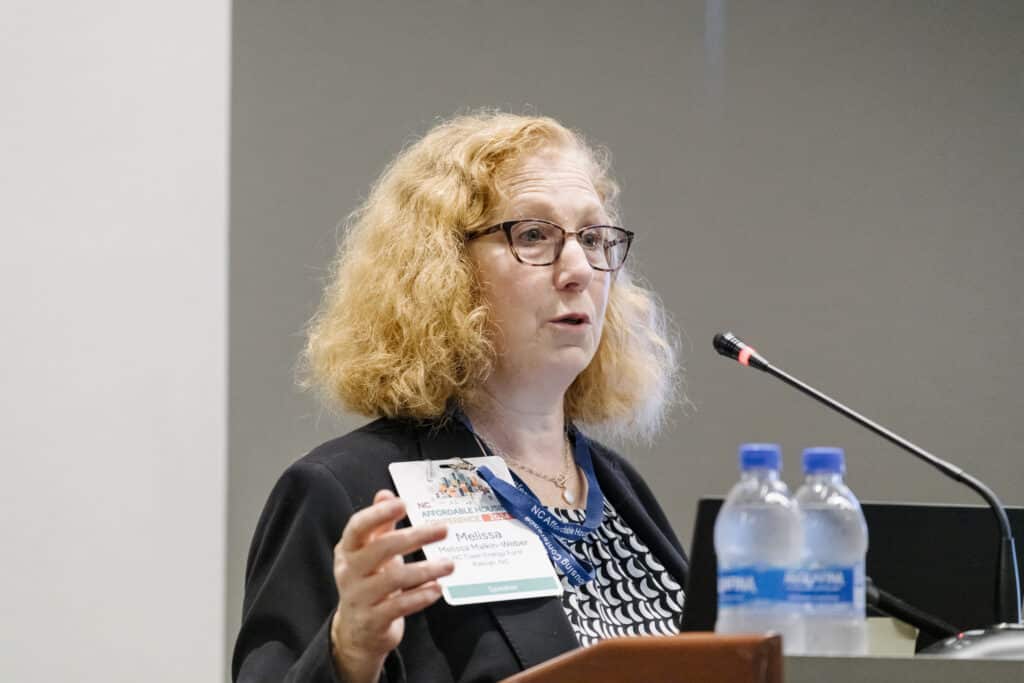
Source: Liz Condo Photography
Levelle Moton, the head basketball coach at North Carolina Central University, gave an inspiring keynote about his experiences growing up in an affordable housing community and the strong community support he felt.

Source: Liz Condo Photography
Emily Cadik, Chief Executive Officer of the Affordable Housing Tax Credit Coalition (AHTCC), wrapped up the event stressing the importance of advocating for affordable housing tax credits. She urged everyone to engage with local politicians and invite them to Low Income Housing Tax Credit (LIHTC) projects’ ribbon cuttings & construction kick offs to show them that what they’re voting for makes a direct impact in the communities they serve.
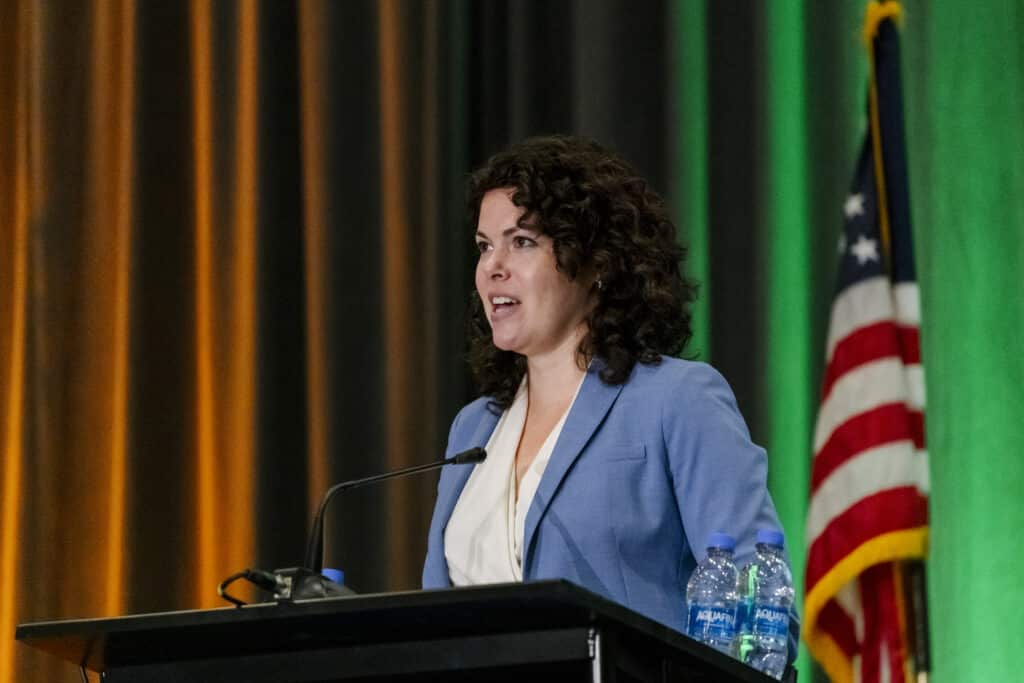
Source: Liz Condo Photography
The Need for Energy Efficiency in Affordable Housing
Implementing energy efficiency in affordable housing offers significant benefits to residents. Homes built to meet Energy Star or other green building standards significantly reduce operational costs, directly lowering residents’ monthly utility expenses compared to traditional homes. Beyond financial savings, energy-efficient homes enhance resident well-being by providing better air quality and fewer temperature fluctuations, thanks to superior insulation, proper ventilation, and appropriately sized HVAC systems.
Having participated in numerous affordable housing conferences, we have consistently heard from residents about the critical role of affordable housing in providing financial relief during challenging times and ensuring a comfortable living environment. By prioritizing energy efficiency, we not only support these communities but also contribute to the construction of resilient, low-risk housing projects with long-term benefits.
Incentives for Energy Efficiency in Affordable Housing
In North Carolina, achieving the ENERGY STAR certification is a requirement under the Qualified Allocation Plan (QAP) for Low Income Housing Tax Credit (LIHTC) projects.
What is ENERGY STAR?
For those who might not be familiar, the ENERGY STAR certification is for buildings that meet specific energy efficiency guidelines set by the U.S. Environmental Protection Agency. Learn more about ENERGY STAR for multifamily projects→
Save On Your Affordable Housing Projects With 45L Tax Credit
The 45L Tax Credit is a Federal Tax Credit available to new construction multifamily and single-family projects that meet energy-efficiency building standards.
45L Tax Credit Overview
- ENERGY STAR Multifamily New Construction (MFNC): $500/unit
- ENERGY STAR MFNC + DOE Zero Energy Ready: $1,000/unit
- ENERGY STAR MFNC + Prevailing Wage: $2,500/unit
- ENERGY STAR MFNC + DOE Zero Energy Ready: $5,000/unit
Learn how you can maximize your savings with the 45L Tax Credit →
Affordable Housing Requirements In The Southeast
And it’s not just North Carolina! States like Virginia and South Carolina are also on board, requiring the ENERGY STAR certification for their LIHTC projects. They even offer the option to earn additional points through Green Building certifications. This shows a growing trend across the Southeast to integrate sustainability deeply into our building practices.
How Southern Energy Management Can Help You
At Southern Energy Management, we specialize in simplifying green building and energy efficiency options to help your multifamily, mixed-use, and commercial project teams create more valuable and sustainable buildings. Our affordable housing account manager, Kristyn Mott, is here to guide you through getting all the documentation you need for your upcoming projects.
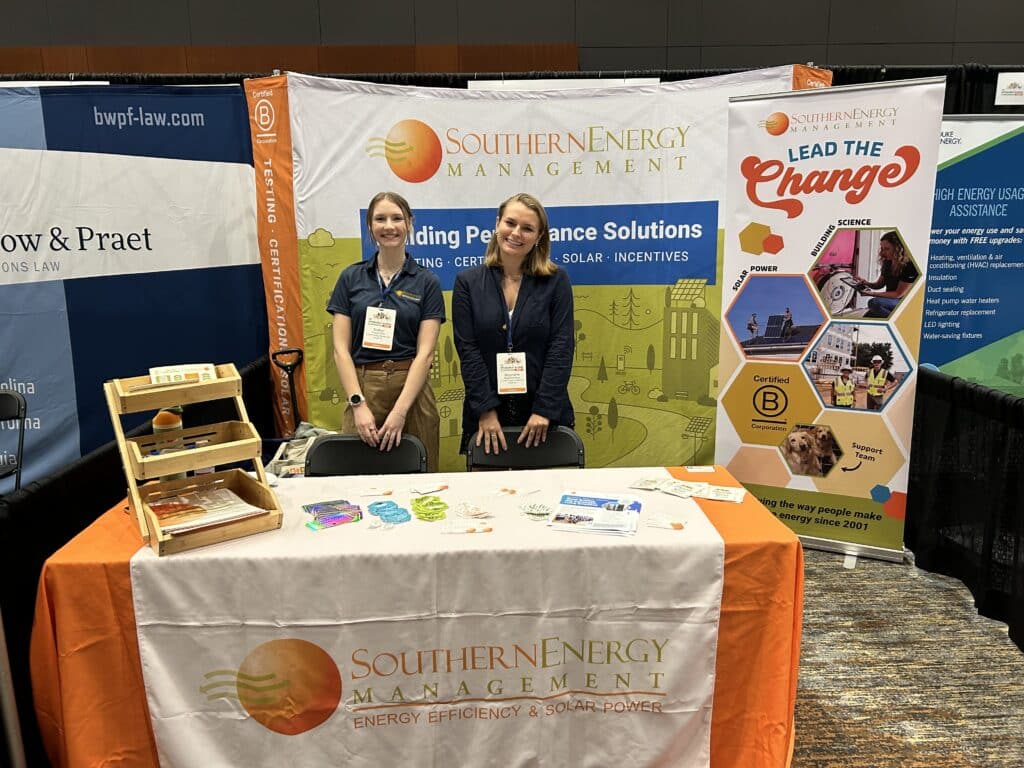
Ready to Chat?
Feeling inspired? Got a project in mind that could use a touch of sustainability? Set up a call with Kristyn and let’s make your next housing project not just a place to live, but a step towards a more sustainable future.

